
Cestrum nocturnum, Nightblooming Jasmine in GardenTags plant encyclopedia
Cultivated from Cestrum diurum and Cestrum noctornum, Orange Peel is a sprawling shrub with tubular flowers that put on a show from spring until the first frost. Odorless during the daytime, the flowers will give off a fragrance during the evening and nighttime hours.
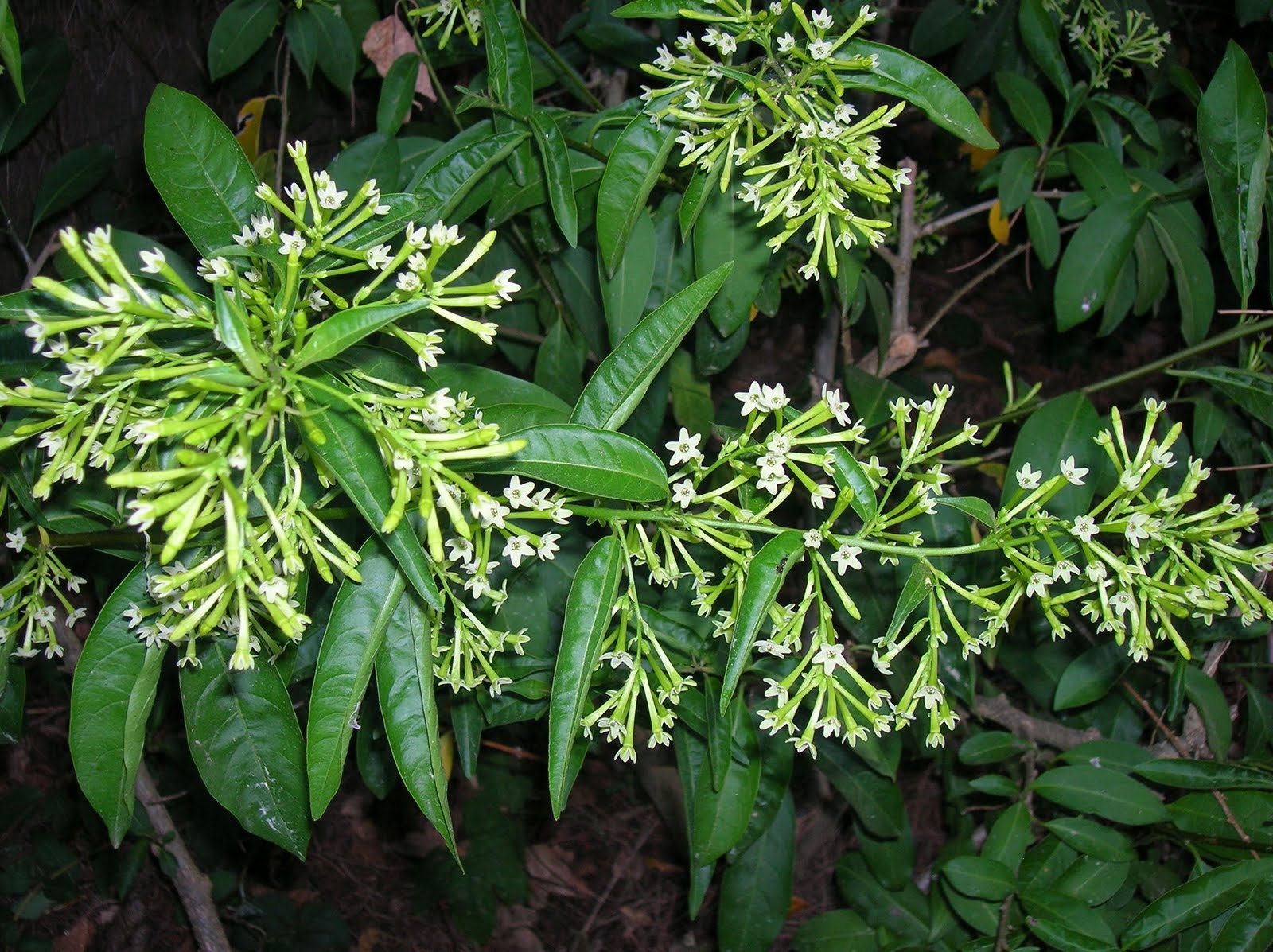
Galán de noche Cestrum nocturnum Garden Catalunya Plants (Sant Vicenç dels Horts, Barcelona)
Cestrum nocturnum ( Night Blooming Jasmine ) C. nocturnum is an evergreen shrub with night-blooming white flower clusters. As the flowers open in the evening, a lovely, bold fragrance is emitted. Likes constantly moist soil and full sun. Can tolerate some shade.
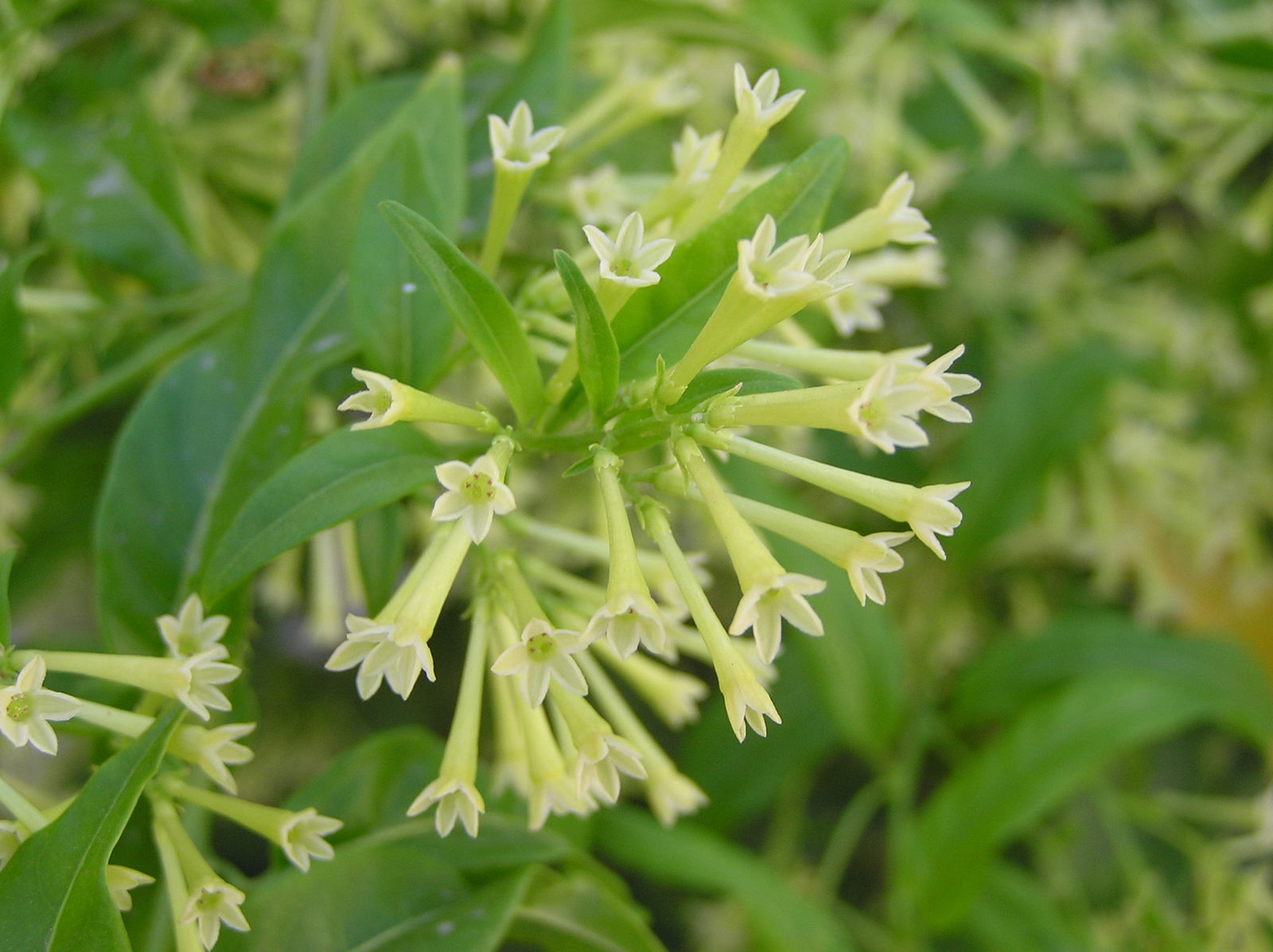
Cestrum nocturnum L. Plants of the World Online Kew Science
Cestrum nocturnum (common names include night-blooming jasmine, night-blooming cestrum, and raatrani ), is a species of Cestrum in the plant family Solanaceae (the potato family). It is native to the West Indies, but naturalized in South Asia . More Info Computer Vision Model Included

Cestrum nocturnum, Nightblooming Jasmine in GardenTags plant encyclopedia
Cestrum nocturnum is self-pollinating and does not need another plant for cross-pollination. Common pollinators include bats and moths. All Cestrum nocturnum plants flower at the same time. If yours is in flower, you can be sure that every other one in the neighborhood is in flower at the same time.

Night Blooming Jessamine, Cestrum nocturnum, Monrovia Plant
Night Jasmine Information Commonly known as night-blooming jasmine, night-blooming jessamine, or lady-of-the-night ( Cestrum nocturnum ), it is not a true jasmine, at all, but is a jessamine plant of which are members of the nightshade (Solanaceae) family along with tomatoes and peppers.

Cestrum nocturnum, Nightblooming Jasmine in GardenTags plant encyclopedia
Growing Tips forCestrum Nocturnum "The Night Blooming Jasmine". • Full to partial sunlight is needed. The more sunlight the better. • Once the growth has hardened and the leaves are mature, flowers form along the leaf nodes on the stems. • To increase flowering, new growth needs to reach maturity as quickly as possible.
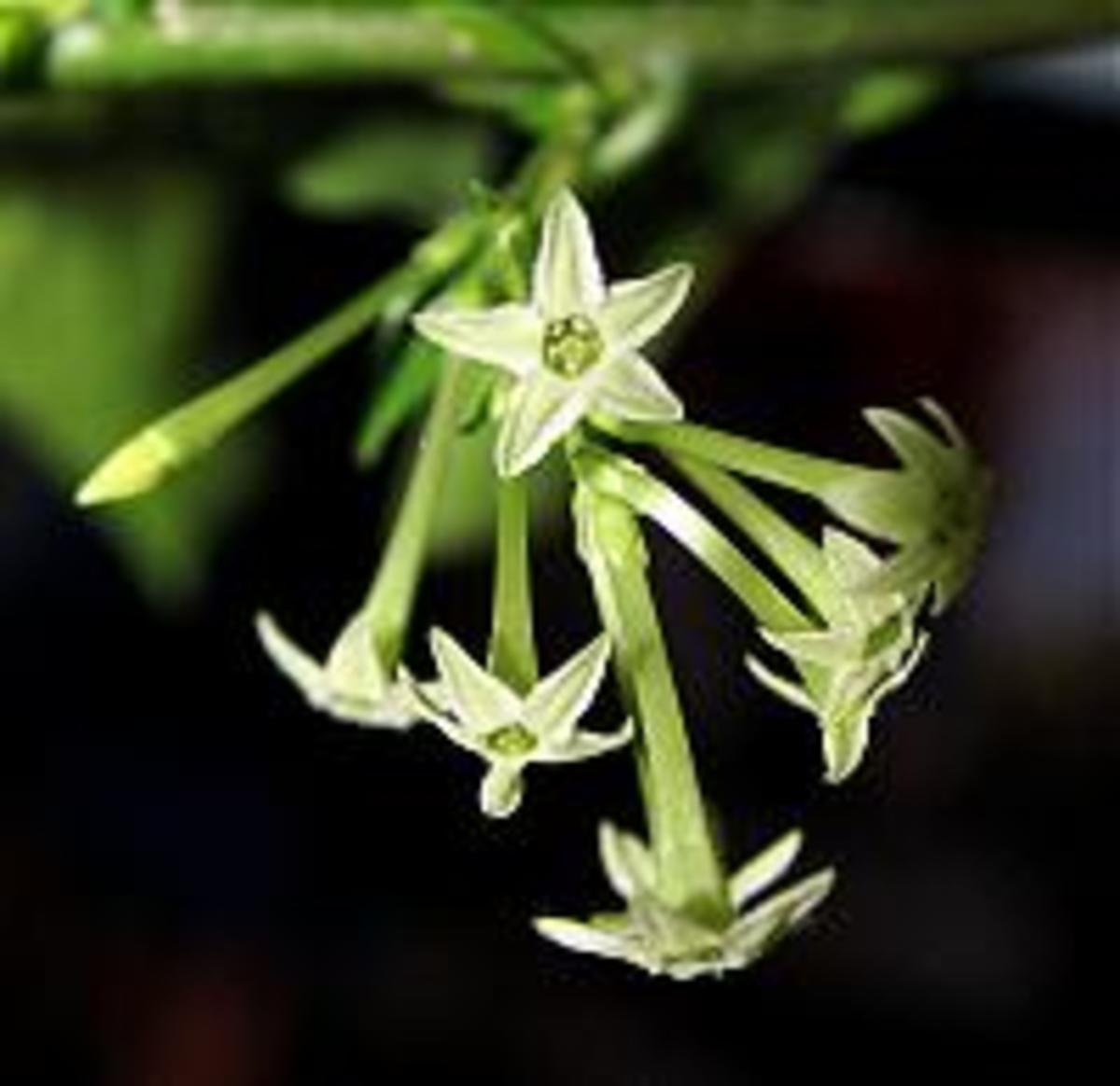
Cestrum Nocturnum (Dama de Noche) the world's strongest scented plant HubPages
Prized for its heady fragrance, Cestrum nocturnum (Night-Blooming Jasmine) is a bushy evergreen shrub adorned with gracefully arching branches lined with glossy, pointed, dark green leaves. In summer, a profusion of slender, tubular, creamy-white flowers, 1 in. long (2.5 cm), open in the evening and close the following morning.

Jasmine NIGHT BLOOMING Cestrum Nocturnum Plant Fragrant Green White Flowers Starter Size 4 Inch
Night blooming jasmine (Cestrum nocturnum) is a tropical, evergreen shrub that is famous for its sweet smell. The look of the plant is unpretentious. It has clusters of tubular flowers and pointy, dark green leaves. But if you walk by the plant during the evening hours, you will get a whiff of a sultry, sweet scent that is distinctive to this.

Night Blooming Jasmine Plants For Sale Cestrum Nocturnum Easy To Grow Bulbs
Cestrum nocturnum. L. Solanaceae + Synonyms. Cestrum hirtellum Schltdl. Cestrum scandens Thib. ex Dunal. Cestrum suberosum Jacq. Common Name: Lady Of The Night. Flowering plant (the flowers only open in the dark) Photograph by: Cary Bass Creative Commons Attribution-Share Alike 3.0 Flowering plant (the flowers only open in the dark)
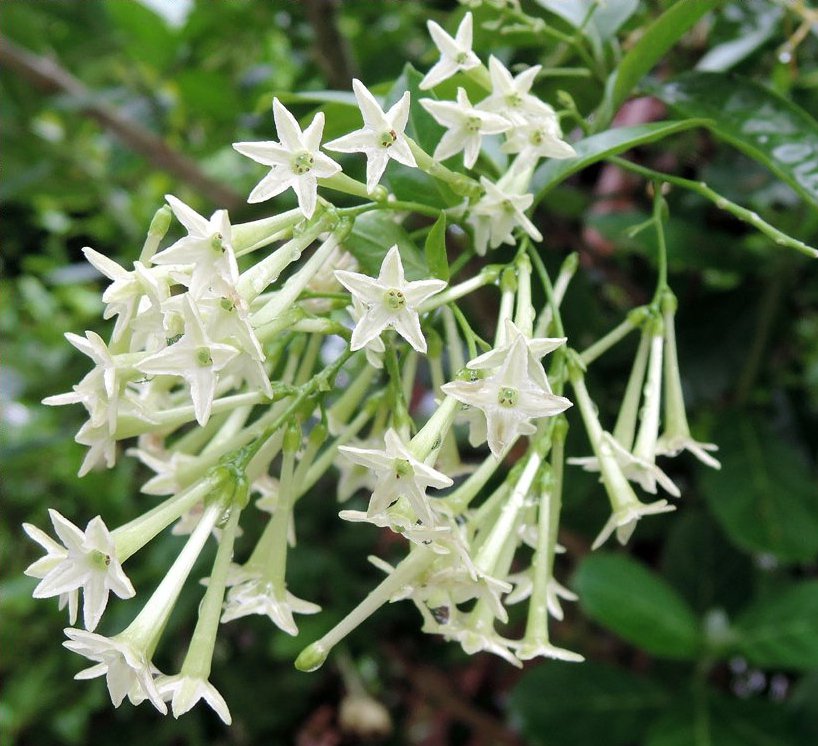
Fragrant NightBlooming Jasmine Cestrum nocturnum 15 Seeds
Night-blooming jasmine ( Cestrum nocturnum) is a fast-growing woody shrub. Part of the Solanaceae family, which also includes potatoes and tomatoes, the plant isn't a true jasmine. It gets its name from the tubular greenish-white or yellow flowers that emit a highly fragrant scent at night and are attractive to butterflies and other pollinators.

Ohio Grown Night Blooming Jasmine Plant Cestrum nocturnum 4" Pot Buy Online in United Arab
Keep Your Plant Healthy. Before night-blooming jasmine is well established, it needs deep, weekly watering - though beware of soggy or excessively salty soil conditions. If the weather is hot, or if you have a potted plant, check each day for dry soil, and then water accordingly. Prune annually, before or after blooming is finished between.

Cestrum Nocturnum “Night Queen or Nightblooming jasmine” Uber Nursery
Cestrum nocturnum, commonly called night jessamine or lady of the night, is an evergreen shrub native to lowland thickets, woodland openings, and disturbed areas in the West Indies and from southern Mexico south to Panama. It is widely planted as an ornamental in tropical regions around the world.
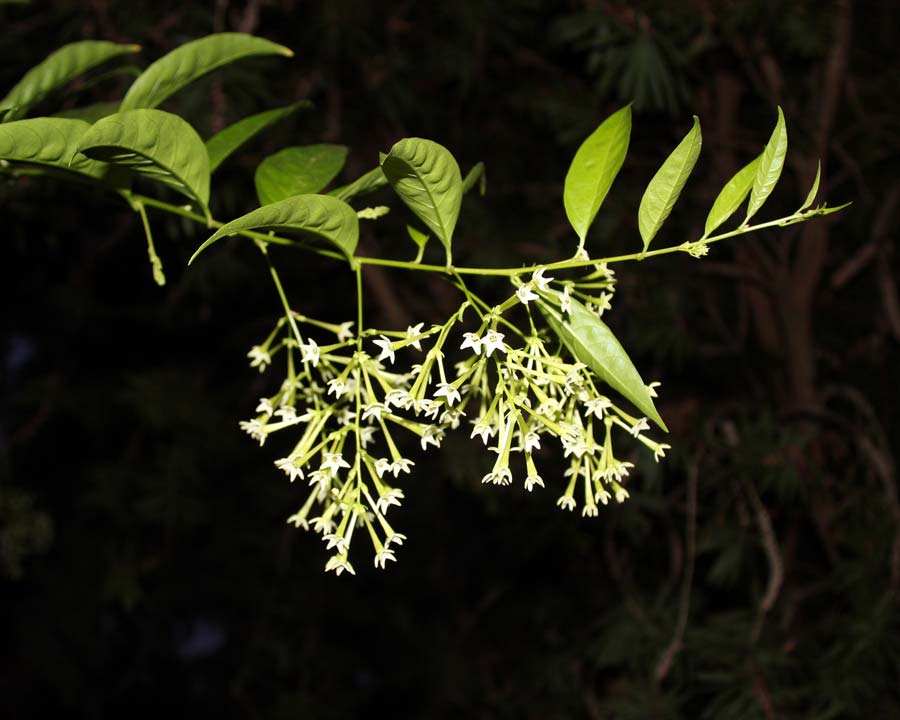
Cestrum nocturnum
Night Blooming Jasmine (Cestrum nocturnum) Skip to the end of the images gallery .. One of the most fragrant plants we grow, Night Blooming Jasmine is an upright container plant from the West Indies with greenish-white flowers that emit a romantic and intoxicating fragrance at night. Just give it a sunny spot and you'll be amazed. To.

Cestrum nocturnum/Raat Ki Rani Flowering Plants Exotic Flora
Cestrum nocturnum is an evergreen woody shrub with slender branches growing to 4 m (13 ft) tall. The plant is multi-branched and heavily foliated. The leaves are simple, narrow lanceolate, 6-20 cm (2.4-7.9 in) long and 2-4.5 cm (0.79-1.77 in) broad, smooth and glossy, with an entire margin.
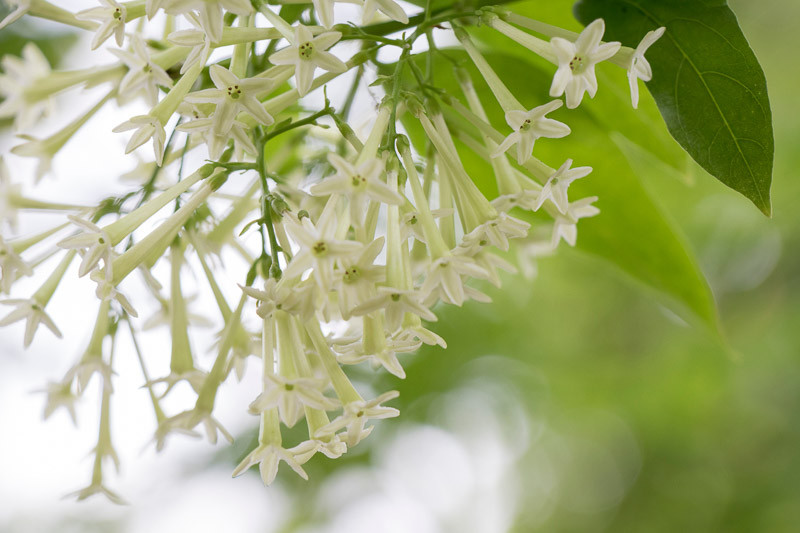
Cestrum nocturnum (NightBlooming Jasmine)
Cestrum nocturnum lady of the night A bushy, evergreen shrub to around 4m with arching stems bearing ovate leaves and panicles of greenish-tinged, creamy-white, tubular flowers that release a sweet and musky perfume at night. Flowers may be followed by clusters of small, white fruits Other common names night jessamine night-blooming jasmine
AP Biology Plant Project NightBlooming Jasmine, Cestrum Nocturnum
Cestrum nocturnum Pronunciation: SES-trum nok-TER-num SKU #02360 9-11 Your climate might be too cold for this plant: Change Location Find In Store OVERVIEW DETAILS STYLE CARE HISTORY This Plant's Growing Zones: 9-11 Your USDA Cold Hardiness Zone: Your climate may be too cold for this plant Change Location Be Inspired